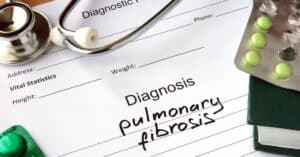Quitting smoking is hard, but trust us, it’s worth it.
There are some of you out there with chronic obstructive pulmonary disease (COPD) that may be reading this and nodding your head.
Perhaps, you’ve successfully quit smoking after a diagnosis. Perhaps, a loved one or family member finally got through to you on the importance of quitting.
If you’ve been able to successfully quit smoking, congratulations, because quitting a habit like smoking tobacco is a feat that only 6% of smokers who try to quit will ever accomplish.
In addition, you presumably have a clear understanding just how much of an impact quitting has had to your energy levels and overall health. You get it.
On the other hand, for every one of you that has successfully quit, there are three to four others that have tried and failed. You’ve hit a wall.
You’ve smoked too long—maybe since you were a teenager—and now the habit is ingrained. You may feel like it’s over for you anyways, or that it’s too late to change.
Here, at the Lung Institute, we disagree.
Quitting smoking is incredibly difficult, probably one of the hardest things you’ll ever do. And yet, it’s also one of the most important things you can do to affect your life in a positive way.
Although we’ve given you a few steps to quitting, we’re going to take this time to talk about why you should quit, rather than how.
For your inspiration and health, we’re here to explain Quitting Smoking: 5 Benefits of Kicking the Habit.
5. Your Overall Health Will Improve
Let’s start with the first benefit out of the gate to your health when you quit smoking: your heart rate will drop to a normal level within 20 minutes of your last cigarette. Within two hours, your blood pressure levels will return to normal levels, warming your extremities as inner circulation begins to improve.
Although nicotine withdrawals typically hit around this 2-hour mark, within 12 hours, the CO2 levels within your body will decrease. These previous levels can be harmful to the body’s heart and other organs, so their reduction serves to boost your overall health.
In a day or two, your sense of smell and taste will improve, which is a benefit that can be universally appreciated. In two to three weeks, exercise should be easier, and fits of coughing and shortness of breath (common COPD symptoms) may become markedly reduced.
4. Your Mood and Outlook Gets Better
Simply put, feeling better physically has a strong correlation with feeling better mentally. For those who smoke and deal with the negative side-effects and symptoms of prolonged smoking, psychological issues such as depression and anxiety are often associated.
However, in the absence of smoking and its harmful effects—i.e. quitting smoking—mood and general outlook is often seen to improve.
Given that the degenerative nature of smoking on a person’s health can make their outlook on the future potentially bleak, the opposite can be said in the resurgence of restored vitality after quitting.
Suddenly, life can seem capable of being changed, controlled and directed.
3. Your Energy Levels Increase
Along with the general health effects that come from quitting smoking, your energy levels will improve upon quitting as well.
One of the biggest problems with excessive tobacco smoking as it pertains to your health is that it serves to wear away at the health of your organs. It makes it harder for your heart to pump blood—which provides oxygen to the rest of your body—affects your arteries, and damages your lungs in particular.
The symptom of shortness of breath alone can have a dramatic effect on feelings of fatigue, causing you to feel frequently tired and reducing your mobility.
By removing the damaging element that is smoking and allowing your vital organs to gradually recover, you will inevitably experience a significant uptick in your overall energy levels.
And on the subject of energy levels…
2. Your Breathing Gets Easier
As the primary organs affected by cigarette smoke are your lungs and heart, when you quit smoking, be prepared to experience a greater ease in breathing.
Often the symptoms that cause issues of fatigue, airway constriction and shortness of breath are a direct result of cigarette smoking—whether as a lung irritant or a chemical factor leading to the development of chronic lung diseases like COPD, pulmonary fibrosis and emphysema.
By quitting smoking, you allow the inflammation—brought about through smoking, which obstructs your airways and causes greater difficulty breathing—to gradually be reduced.
On physiological level, this allows a greater amount of air to reach the lungs and be expelled throughout the body.
1. More Time with Grandchildren and Loved Ones
Perhaps the most important entry on this list, quitting smoking gives you more time. This is time that can be spent engaging in hobbies, spending time with a spouse, enjoying retirement or playing with grandchildren.
As time is both finite and impossible to restore, it is fundamentally the most important resource in this world.
Given that on average, non-smokers live 10 years longer than current smokers, the acting of quitting and gaining a significant amount of time back—time to do anything you want—is an opportunity too great to pass up.
All you need to do is put the cigarette down and regain control of your life.
It’s difficult, incredibly so, but not impossible. And if something’s possible, we believe it’s worth a shot.
Looking Towards What’s Next
Quitting smoking can either be disheartening or it can be a guidepost to change a few aspects of your life to take control of your health and future.
And as we stated earlier, time is the biggest factor in managing one’s health; the sooner you act to affect your health positively, the better your overall outlook.
With a few behavioral changes, it’s possible to greatly affect the pronouncement of symptoms within those with COPD, emphysema and pulmonary fibrosis.

Christine Kingsley, APRN is the Health and Wellness Director at the Lung Institute where she focuses on providing helpful online resources for people looking for information on various lung diseases, breathing exercises, and healthy lifestyle choices. She advocates for holistic care that involves working with your doctor to explore all options including traditional and alternative care while focusing on diet and exercise as proactive measures.









